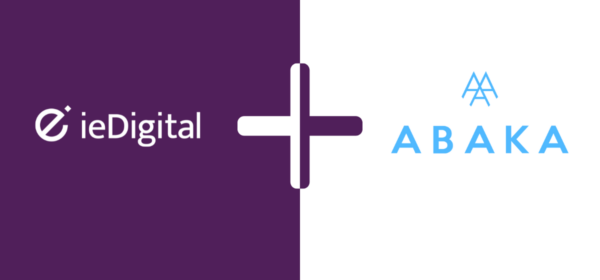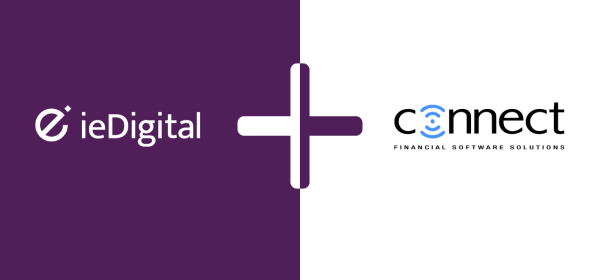Hi, Merlyn. You’re a researcher at Money and Mental Health. Tell us a little bit more.
We are a research charity. We were set up three years ago by Martin Lewis, Money Saving Expert. Our job is to try to understand the links between mental health problems and financial difficulties. We then try to draw up some practical proposals to break down those links.
We’ve discovered that debt and mental health problems are inextricably linked. You published a startling fact earlier this year in your statistical update on this subject, and found that people with mental health problems are three and a half times as likely to be in problem debt.
Yes, it’s a really strong relationship. If you don’t have a mental health problem, about 5% of those people are going to have a debt problem as well. That rises to about three and a half times, to about 18% of people with a mental health problem. If you’re a bank or some other kind of creditor, that means half of your customers who are in debt are also likely to have a mental health problem. We think it has some really profound implications for the way we should design those kinds of services.
Are these figures also affected by the type of mental health condition you have, or would that be oversimplifying something very complex?
We do see a difference between different mental health problems. Mental health is one big umbrella term, and we’ve got lots of conditions that sit under that, from more common conditions like anxiety disorders and depression, through to slightly rarer or more serious conditions such as bipolar disorder and schizophrenia.
The universal design approach to mental health
I think it’s true to say that mental health can affect our ability to find work, with so many people suffering with debt problems are already on low incomes. How do health issues manifest themselves in managing our day to day finances?
There’s quite a few things there. The ways that mental health problems can affect our finances and financial prospects, they’re quite varied. As you said, people with mental health problems are more likely to be living on a lower income, or to be in more insecure types of work. This can mean people can be quite financially vulnerable. When one of those shocks happens, such as the boiler breaks down or an electricity bill is higher than expected, it can be difficult to cope with that shock if you’re already living on a lower income.
But we also see that some of the common symptoms of mental health problems can have a big impact on the way we manage our money and the way we control our spending. We might think about mental health problems as affecting us emotionally or the way that we feel, yet lots of the biggest impacts are cognitive and psychological. Mental health problems can often affect our memory or our impulse control, and this can affect the way we manage our finances. If you’re struggling with memory problems, you may find it harder to remember passwords and pin codes for your banking, and you may have less visibility over your finances as a result of that. You can become more impulsive when you’re unwell, might spend more money than you can afford and you may struggle to stick to a budget. These are some of the big reasons that mental health problems can feed into financial difficulties.
It’s such a strong point you’re making. I think we are guilty as a society of saying these are mental health issues and they have the big names like bipolar disorder and depression, yet concentration, low motivation – these are all issues that are very important and are often under appreciated.
Yes, I think so. We can all appreciate what it’s like to have difficulty concentrating or difficulties with memory. For some people with mental health problems, it can be far more pronounced. When it comes to financial services, we think the best way to approach these problems is to think about a universal design approach. So rather than design your products and services with the average customer in mind, or with a hypothetical super-rational consumer, we think it’s important to try to understand some of the particular needs of the customers who struggle the most, and try to design services that meet those customers’ needs.
There are lots of particular accessibility needs that people with mental health problems have that aren’t always met.
So personas and user journeys that we often come up with, they’re not always so accurate, are they?
There is a potential difficulty with oversimplifying it with these kinds of personas, but they can be a useful way of illustrating problems. It’s about how you use them.
Tackling the stigma of debt
There’s a stigma attached to being in debt as well. Does this stop people asking for help?
Yes. We often talk about the stigma of mental health problems. It’s really great that there’s lots of work underway to try to chip away at this and to help people understand that it’s OK to talk. We also see stigma around financial problems. Often, financial independence and financial stability, they’re wrapped up in the way we think of ourselves.
When people struggle financially, it can be an isolating experience and people often struggle to talk to others about it – whether that’s friends and family, or whether that’s seeking help. Often, when people have a debt problem, even though there’s lots of great and free services out there to help you, people can sometimes wait as long as a year or even longer to stick their hand up and ask for help. This is because of psychological barriers such as stigma.
What’s the best way to approach a person with mental health problems to open a discussion about their financial situation? Is there a right way and a wrong way?
It’s important to recognise that mental health problems themselves are very common. Lots of people will experience them at some point in their lives. Unfortunately, so are financial problems. Appreciating these two factors at the start make it a bit easier to talk.
The other thing to say is to stress that help is out there, with mental health problems and financial difficulties. There are lots of services – free support services – that can make a real difference. There is a positive message to make there, and a positive message when somebody is struggling can be a really important thing.
Meeting accessibility needs for people with mental health problems
Are financial services companies doing enough to help?
There’s been lots of improvement, but I think there’s definitely more they can do. I think lots of financial services companies are really improving their understanding of different sorts of vulnerability, but we think that, particularly with mental health, there are some key things they can do.
One of the big things would be to think about accessibility. We’re quite used to talking about accessibility for people with physical health problems or sensory conditions. There are lots of parallels here. There are lots of particular accessibility needs that people with mental health problems have that aren’t always met.
One common one is about the way we communicate. People with mental health problems often have difficulties with particular communication channels. Half of people who have experienced a mental health problem can really struggle to use the telephone to get in touch with financial services providers. For others, it can be different. It could be a problem with face-to-face contact, or it could be struggling to open the post. If your service isn’t equipped to meet those people’s needs, it can be really difficult. If the only way to get in touch and query your account is by telephone, that could be almost completely inaccessible to some of your customers with a mental health problem.
That accessibility through channels can also be exacerbated by a lack of empathy and soft skills.
Of course, but you have to sympathise with members of staff at financial services companies!
There are so many different types of people to talk to!
I think training is really important. Mental health problems are common, as are lots of other different kinds of vulnerability. We should be able to expect that staff have some level of training and an understanding that they sometimes have to have difficult conversations.
How to tackle people’s struggle with impulse control
I really enjoyed reading about Monzo’s gambling block. Have you read about it?
The ability for customers to take control of their finances is something we’ve advocated for a long time. People can be perfectly fine managing their finances when they’re well, but when they’re unwell, it can be really difficult to keep track.
As I mentioned before, people can particularly struggle with impulse control. The idea behind the gambling block as I understand it is that it’s a tool you can enable perhaps when you’re well that will then protect you from harm when you’re unwell, and when you might succumb to the temptation to gamble.
It’s great to see quite a few firms introducing these kinds of tools. Gambling is a really clear-cut case study, but there’s lots of other types of spending people can struggle with. We often hear of people who, late at night, struggle to control the impulse to shop online. It can be really useful to protect yourself from those sorts of impulses as well.
The idea behind having the cooling-off period is that, by the time the 48 hours has elapsed, the urge to gamble may have subsided and you may have protected yourself from financial harm.
Let’s backtrack and explain what we’ve just been talking about. In 2018, Monzo introduced a gambling block, so your card stops working at gambling shops, and you have to engage with Monzo to turn it off. Then you have to wait 48 hours before you can actually use your card for gambling.
That bit of friction at the end is really important. Even though someone might enable the setting because they know they struggle with gambling – it can be a real problem for them – in the heat of the moment, they may still be frustrated that they’re unable to gamble and turn that setting off. The problem there is that you can do a lot of harm quite quickly. The idea behind having the cooling-off period is that, by the time the 48 hours has elapsed, the urge to gamble may have subsided and you may have protected yourself from financial harm.
I love that you used the word friction. In marketing over the last few years, particularly in financial services, we’ve used the term “the frictionless experience”. Yet, sometimes you have to introduce friction in order to help people.
Building friction back into applications to help vulnerable customers
What role do you think technology will play in tackling the issue of mental health?
I think there’s lots that can be done. I think the friction point is really important. We all benefit from the speed of transactions – it’s become much easier to do lots of things, particularly online. For some people, that speed can be a problem, particularly when you’re struggling with impulse control. We advocate people being able to build back in bits of friction to particular activities they struggle with, whether that’s gambling or something else. It’s a responsible application, being able to build in a bit of friction to better meet the needs of particular consumers.
How much do you think a self-serve approach will work, whereby vulnerable customers in debt to their energy company for instance are encouraged to engage with their debt and manage it themselves through an app or browser? It’s better than being hassled over the phone, isn’t it?
Managing debt can be practically quite difficult, particularly if you’re experiencing symptoms of mental health problems that can make it harder for you to concentrate or to deal with long bits of paperwork and things like that. I’m all for practical tools that can make any of those difficult journeys a bit easier. It probably won’t work for everybody, but there’s definitely some good that can be done there.














